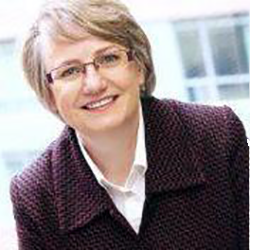
By Rev. Matthew Kieswetter
With the pandemic shrinking distance (in a virtual sense), I reached out by email to Susan Graham Walker, recently retired Manager of Congregational Giving and Stewardship for the Anglican Church of Canada and United Church of Canada, and member of the stewardship committees of her parish and the Diocese of Toronto, to get her thoughts on how our pandemic year has impacted stewardship.
 Early on in the lockdown, she explained, people were focused on the pragmatic ‘fundraising’ sense of ‘stewardship.’ But as time went on, people went deeper into the fundamentals of stewardship as a facet of discipleship.
Early on in the lockdown, she explained, people were focused on the pragmatic ‘fundraising’ sense of ‘stewardship.’ But as time went on, people went deeper into the fundamentals of stewardship as a facet of discipleship.
“Put most simply — how do we inspire giving, invite generosity and offer gratitude at this or any other time?” Susan urges us to conceive of congregational giving in the context of Christian living rather than as fundraising: “Funding our ministry through an understanding of our own discipleship and giving as a spiritual practice,” is how she describes it.
Our habits and options have changed, resulting in changes to revenue sources. “What was understood as reliable is not necessarily reliable now,” wrote Susan. “Our buildings no longer providing stable rental income, for example.”
Dependence on fundraising and rentals, it turns out, has been problematic for some time. “Fundraisers have increasingly become energy drainers as old models struggle with change in community culture and aging of membership. It is past time to really evaluate the purpose of fundraisers and how much we rely on them for core support of ministry”, says Susan. She suggests that we reimagine our fundraisers with a goal to raising our profile and welcoming friends and neighbours, instead.
We might also move events to an online format. This is not without issues, however, because, as Susan warns, “just putting an event online is no guarantee of receiving as much as an in-person event. What is certain is that it involves a whole different kind of work on the part of volunteers. Those that know how to bake pies may not know how to create a virtual bake sale event online.”
What might we consider as we approach the one-year anniversary of this pandemic and all the changes it has brought to our lives and our churches? Firstly, we would do well to recognize that there are limitations to ‘the plate,’ especially when we can’t meet in-person. Pre-authorized credit/debit giving is now becoming more accepted, “options [that] have been available for some time but resisted until now,” wrote Susan.
Also, she encourages familiarity with CanadaHelps.org. Each congregation can find its profile, claim it, and then direct people there. Anyone can then make lump sum online donations. The convenience (especially for newcomers, those at a distance, or otherwise on the ‘periphery’) outweighs the small transaction fees.
Rest assured that lots of stewardship development can happen at a basic, relational level. Update parish lists. Verify contact information. Inspire and invite people to give, and thank them when they do. Keep in touch with one another, whether in the form of a friendly call, or ongoing pastoral care.
Lastly, remember that we are people steeped in narratives: “Tell stories of what generosity accomplished rather than where the money was spent. What did the money do?” Inspire support, in other words. Rev.
Matthew Kieswetter is ther rector of St. Andrew's Memorial, Kitchener, and a member of the diocesan Stewardship Committee.